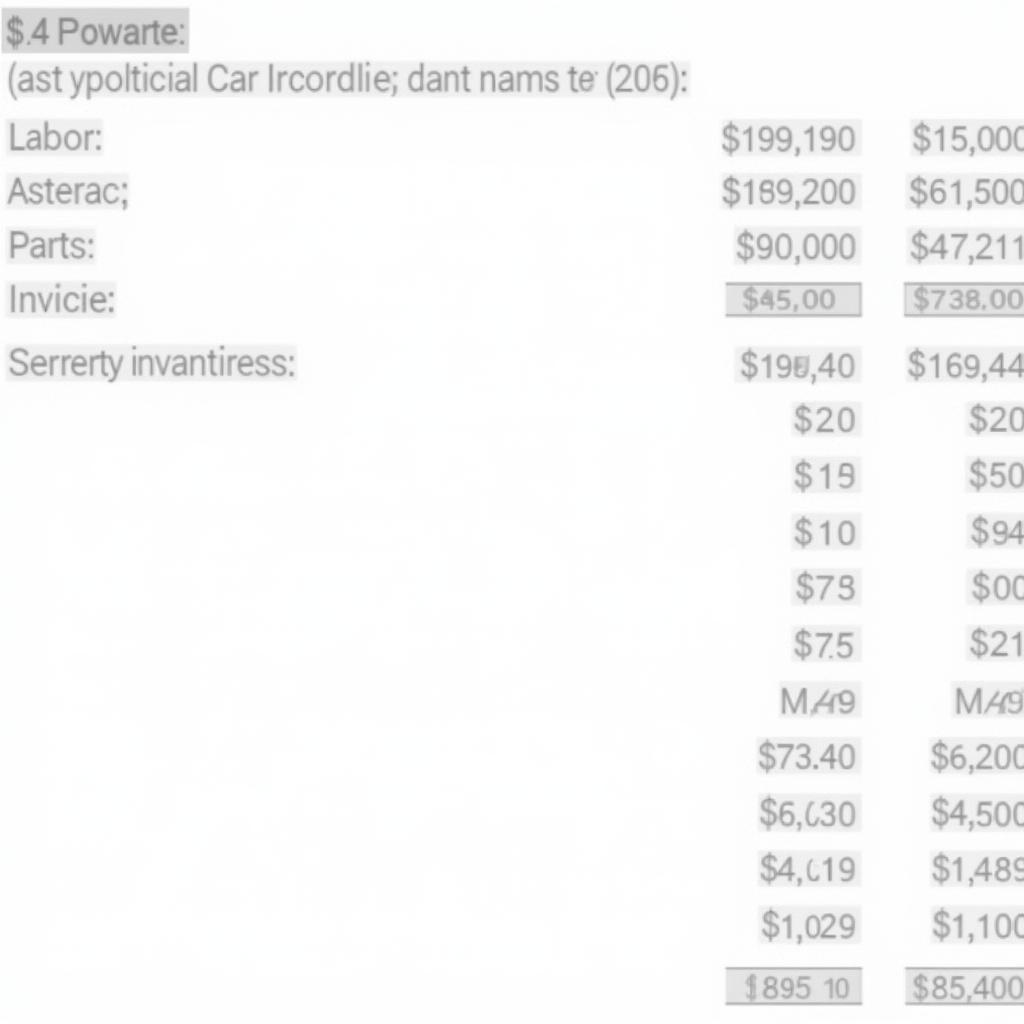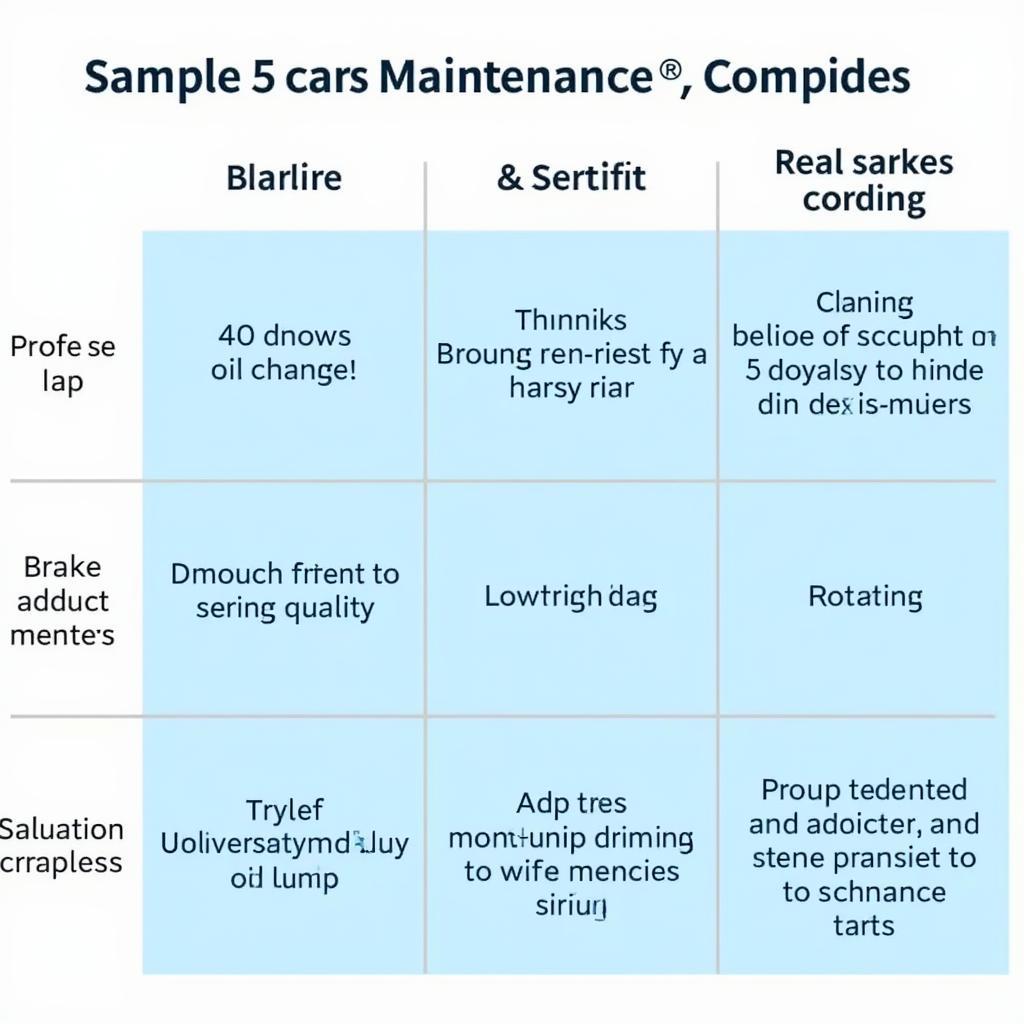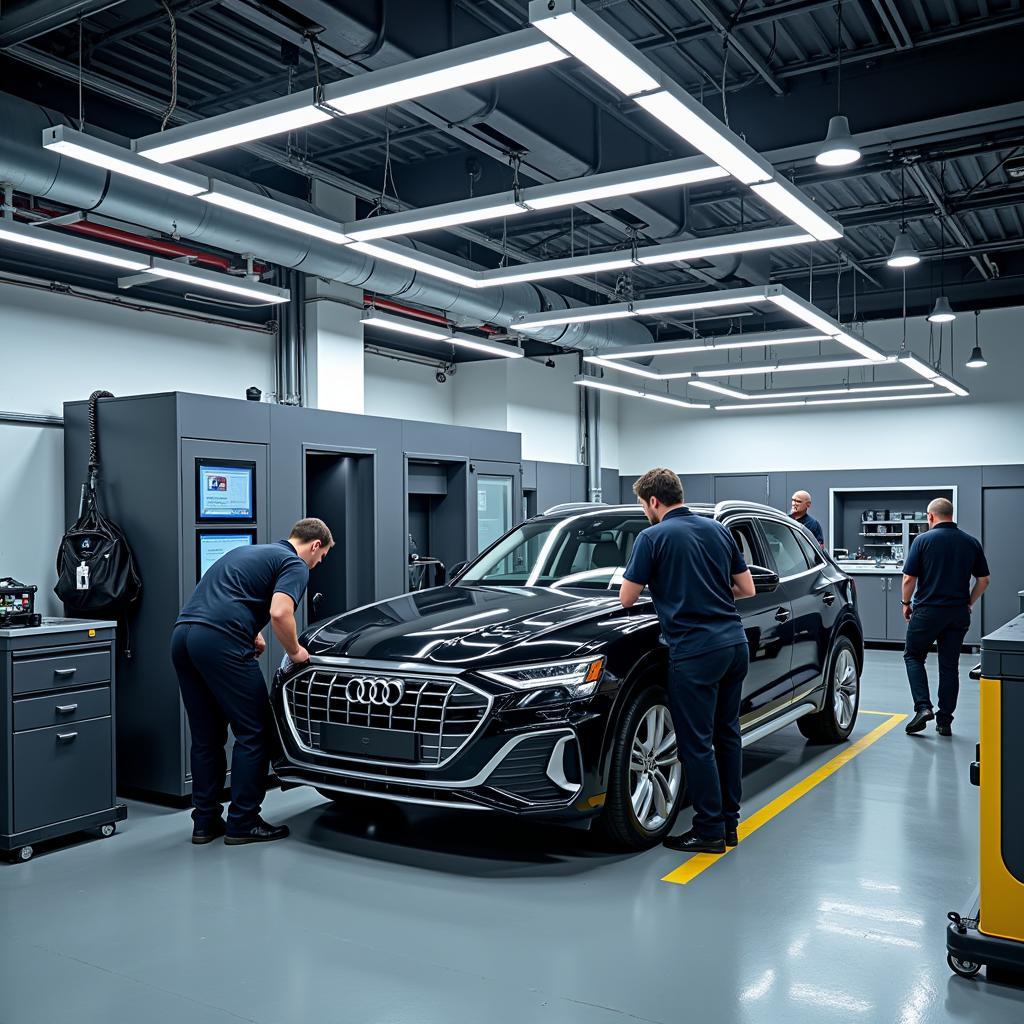Understanding Car Service Fees: A Comprehensive Guide
When it comes to keeping your car in top condition, regular servicing is non-negotiable. However, the topic of Car Service Fees often leads to confusion and apprehension for many car owners. This comprehensive guide aims to demystify car service fees, providing you with the knowledge you need to make informed decisions about your vehicle maintenance.
What Determines Car Service Costs?
The cost of car service can vary significantly depending on several factors. Understanding these variables can help you anticipate expenses and budget accordingly.
- Type of Service: Routine maintenance like oil changes and tire rotations will be less expensive than major repairs like engine overhauls or transmission replacements.
- Make and Model: Luxury and high-performance vehicles often come with higher service costs due to specialized parts and labor.
- Vehicle Age: Older vehicles might require more frequent repairs and specialized parts, potentially increasing service expenses.
- Location: Labor rates and parts availability can differ based on your geographical location.
- Service Center: Dealership service centers may charge higher labor rates compared to independent mechanics.
Breaking Down Common Car Service Fees
Let’s delve into the typical components of car service fees:
- Labor Costs: This constitutes the largest portion of the bill and covers the mechanic’s time and expertise.
- Parts and Materials: This includes the cost of any parts replaced or fluids used during the service.
- Shop Supplies: Some service centers add a separate charge for consumables like cleaning agents and shop towels.
- Environmental Fees: Certain areas may impose fees for the proper disposal of hazardous materials like used oil and batteries.
- Taxes: Applicable taxes will be added to your final invoice.
 Car service invoice breakdown
Car service invoice breakdown
Deciphering Service Quotes and Estimates
Before authorizing any work, it’s crucial to obtain a detailed quote or estimate from the service center.
- Request a Written Estimate: Always ask for a written estimate that clearly outlines the proposed services, associated costs, and estimated completion time.
- Review the Estimate Carefully: Scrutinize the estimate for any unclear charges or potential discrepancies. Don’t hesitate to seek clarification from the service advisor.
- Compare Quotes: Obtain quotes from multiple service centers, including dealerships and independent mechanics, to compare pricing and services offered.
Tips for Managing Car Service Expenses
Keeping your car well-maintained doesn’t have to break the bank. Here are some practical strategies to manage your car service expenses:
- Follow the Manufacturer’s Maintenance Schedule: Adhering to the recommended service intervals outlined in your owner’s manual can help prevent costly repairs down the line.
- Shop Around for Parts: Inquire about the possibility of using aftermarket or refurbished parts for certain repairs, as they can be significantly cheaper than original equipment manufacturer (OEM) parts.
- Consider DIY Maintenance: Simple tasks like oil changes, air filter replacements, and tire rotations can be handled at home with basic tools and knowledge.
 Car maintenance schedule example
Car maintenance schedule example
The Value of Choosing a Reputable Car Service
While it’s tempting to opt for the cheapest service option, prioritizing quality and reliability can save you money in the long run. A reputable car service center offers:
- Experienced and Certified Technicians: Skilled technicians ensure accurate diagnoses and efficient repairs, minimizing the risk of repeated visits for the same issue.
- Quality Parts and Workmanship: Reputable centers stand behind their work, often offering warranties on both parts and labor.
- Transparent Communication: They provide clear explanations of the work performed, associated costs, and any potential issues.
Navigating Unexpected Car Repair Costs
Despite meticulous maintenance, unexpected car repairs can arise. Here’s how to navigate these unforeseen expenses:
- Stay Calm and Gather Information: If your car breaks down, ensure your safety first and gather as much information about the problem as possible.
- Contact Your Trusted Mechanic: Reach out to your regular mechanic for an initial assessment and potential solutions.
- Explore Financing Options: If the repair costs are substantial, inquire about financing options offered by the service center or explore external financing avenues.
Conclusion
Understanding car service fees empowers you to make informed decisions about your vehicle maintenance and budget accordingly. By following a proactive approach to car care, choosing a reputable service center, and staying informed about potential repair costs, you can ensure your car runs smoothly without breaking the bank. Remember, regular maintenance is an investment in the longevity and safety of your vehicle.
FAQs about Car Service Fees
Q1: How often should I service my car?
A: Refer to your owner’s manual for the manufacturer’s recommended service schedule. Generally, most cars require servicing every 6 months or 5,000 miles, whichever comes first.
Q2: What is included in a basic car service?
A: A basic car service typically includes an oil change, oil filter replacement, tire rotation, fluid top-offs, and a visual inspection of key components.
Q3: Is it cheaper to get my car serviced at a dealership or an independent mechanic?
A: While dealership service centers may have higher labor rates, they often specialize in your car’s make and model. Independent mechanics can be more affordable, but it’s essential to choose a reputable one.
For specific car service needs, explore our other helpful resources:
- Need a reliable car pick-up service in Singapore? Check out our guide on car pick up service singapore.
- Traveling to Chicago? Learn about car service from midway airport to downtown chicago.
Need expert advice or assistance with car service? Contact us via WhatsApp at +1(641)206-8880 or email us at [email protected]. Our dedicated team is available 24/7 to address your queries and provide exceptional support.

